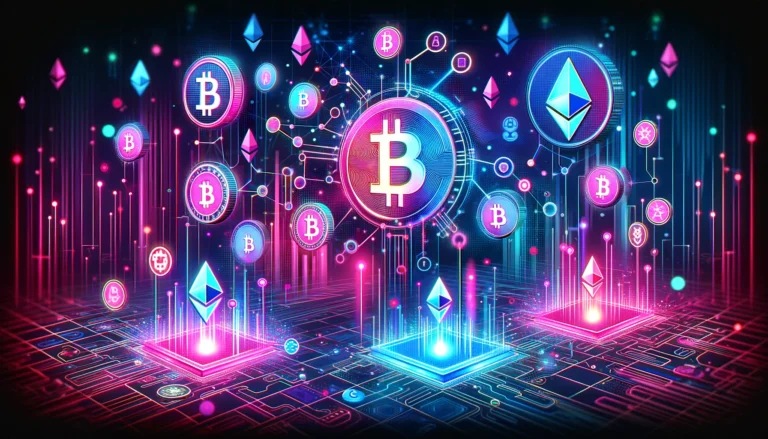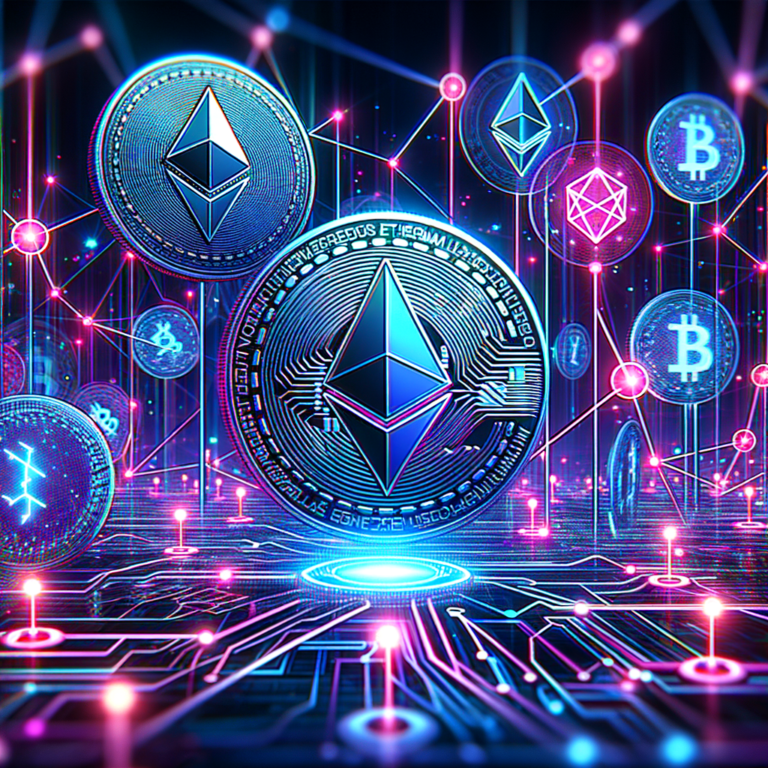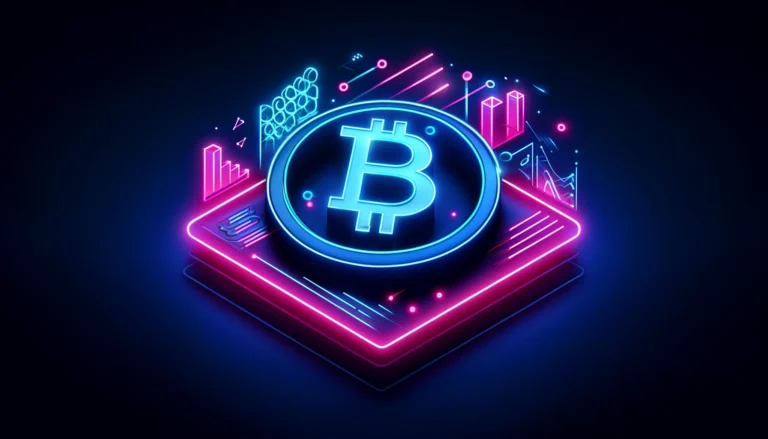Pixel Profits: Boosting Gaming with Bitcoin & Blockchain
The intersection of gaming and blockchain technology promises to revolutionize how players experience and value in-game assets and interactions. As cryptocurrencies like Bitcoin gain mainstream acceptance, their integration into digital ecosystems, including gaming, is not only innovative but increasingly necessary. This article explores the profound impact of blockchain and Bitcoin on the gaming industry, examining everything from enhanced security measures to new economic opportunities that benefit both developers and players.
Exploring the Integration of Blockchain in Gaming
Blockchain technology offers a decentralized platform that can transform gaming experiences by introducing true ownership of in-game assets, transparent transactions, and interoperability across different gaming platforms. With blockchain, every item, character, or asset a player acquires can be verified on the blockchain, ensuring authenticity and exclusivity. This integration not only enhances the user experience but also opens up new avenues for developers to create rich, immersive worlds. The potential for blockchain to enable cross-game compatibility means that an asset purchased or earned in one game could potentially be used in another, fostering a new ecosystem of gaming economics.
The blockchain’s immutable ledger also means that every transaction or in-game achievement can be permanently recorded, preventing fraud and creating a trustworthy environment for players. This traceability ensures that the game’s economy remains transparent and fair, benefiting both developers and gamers. Moreover, blockchain allows for the creation of decentralized gaming economies, where players can truly own and trade assets in a peer-to-peer manner without the need for middlemen. This not only enhances the gaming experience but also empowers players to monetize their investments and efforts within the game world.
Bitcoin’s Role in Modern Gaming Economies
Bitcoin, as a pioneering cryptocurrency, has carved a niche for itself in the gaming industry. It serves as a reliable and globally accepted currency for in-game purchases and subscriptions, simplifying the process for international transactions and reducing fees associated with currency conversion and traditional banking systems. Bitcoin payments ensure anonymity and security for users, making it an attractive option for gamers looking to protect their personal and financial information.
The integration of Bitcoin into gaming also provides an avenue for developers to tap into new markets where traditional banking infrastructure is lacking or where gamers are looking for more innovative payment solutions. This has led to the growth of a new segment of gamers who prefer and advocate for cryptocurrency transactions. Furthermore, Bitcoin can be used as an incentive mechanism within games, rewarding players with cryptocurrency for achievements and milestones, which can then be used within or outside the gaming ecosystem.
How Blockchain Enhances Game Security & Trust
Blockchain technology inherently enhances security and fosters trust in gaming platforms by providing a decentralized system where changes must be validated by multiple nodes. This significantly reduces the chances of fraud and hacking, as altering any information within the blockchain would require an enormous amount of computing power. Furthermore, smart contracts automate transactions and enforce the rules of the game in a transparent and immutable manner, ensuring that all parties adhere to agreed-upon terms without bias or error.
The transparency provided by blockchain also reassures users about the fairness of games, which is particularly crucial in online gambling and competitive esports. Players can verify the randomness of game outcomes, the distribution of rare items, and other elements that could be susceptible to manipulation in traditional systems. Additionally, blockchain’s robust security features prevent the duplication of in-game assets, preserving their unique value and ensuring that the gaming economy is not inflated artificially.
Case Studies: Success Stories in Blockchain Gaming
One notable success story in blockchain gaming is “CryptoKitties,” a game that demonstrated the potential of non-fungible tokens (NFTs). Users breed and trade digital cats using Ethereum-based smart contracts, with some rare kitties selling for substantial sums. This game not only highlighted blockchain’s ability to support a thriving, decentralized gaming economy but also set a precedent for future blockchain games that allow players to own, buy, and sell digital assets securely.
Another example is “Decentraland,” a virtual reality platform where players can purchase, build upon, and monetize plots of virtual land. Through blockchain, each piece of land is tokenized as an NFT, ensuring that ownership is secure and transferable. Both of these cases illustrate how blockchain technology not only augments the gaming experience but also creates real-world value and opportunities for players.
Understanding Crypto Payments in Gaming Platforms
Cryptocurrency payments within gaming platforms offer several advantages including faster transactions and reduced fees compared to traditional banking methods. These payments are conducted over secure networks, providing both developers and players with peace of mind regarding the safety of their funds. Additionally, the use of cryptocurrencies like Bitcoin allows for microtransactions, which are particularly advantageous in gaming environments where small, frequent transactions are common.
However, for cryptocurrencies to become more widely accepted across gaming platforms, developers must ensure that these payment methods are integrated seamlessly and are as user-friendly as traditional payment systems. Educating gamers about the benefits and the operational aspects of cryptocurrencies also plays a critical role in adoption. Furthermore, regulatory clarity around the use of cryptocurrencies in gaming remains a hurdle that needs to be addressed to expand their use in this industry.
Future Trends: Blockchain Technology in Gaming
The future of blockchain in gaming holds significant promise for further innovations. We are beginning to see the development of blockchain-based gaming consoles which offer enhanced security and the ability to play and trade games on decentralized networks. Moreover, the concept of “play-to-earn” blockchain games, which reward players with digital currencies that can be exchanged for real-world money, is gaining traction. This not only revolutionizes how value is created and distributed in gaming but also potentially transforms gaming from a hobby to a viable income source.
As virtual and augmented reality technologies mature, blockchain could play a crucial role in creating and managing immersive digital worlds with complex economies and interaction rules. The integration of AI with blockchain in gaming could also lead to more dynamic and responsive gaming environments that change and evolve based on player behavior and preferences. These advancements promise to make gaming more engaging, rewarding, and integrated into our daily lives.
Challenges and Solutions in Blockchain Adoption
While the potential of blockchain in gaming is vast, several challenges impede widespread adoption. Scalability remains a significant concern, as blockchain networks like those of Bitcoin and Ethereum can handle only a limited number of transactions per second. Innovations such as layer-two scaling solutions and the development of new blockchain frameworks are being explored to address these performance issues.
Regulatory uncertainty is another challenge, as governments around the world are still grappling with how to classify and regulate cryptocurrencies and blockchain technology. A collaborative approach involving stakeholders from the gaming industry, blockchain developers, and regulatory bodies is essential to create a conducive environment for blockchain’s growth in gaming. Lastly, user experience must be prioritized; blockchain and crypto payments must be as intuitive as traditional methods if they are to gain widespread acceptance among gamers.
The fusion of blockchain technology and gaming is set to redefine the digital landscape, offering unprecedented security, transparency, and economic opportunities. As developers and gamers alike navigate the challenges and explore the full potential of this integration, the future looks promising with an expectation of more immersive, rewarding, and secure gaming experiences. Embracing these technologies not only propels the gaming industry forward but also sets the stage for a new era of digital interaction and economic exchange.



